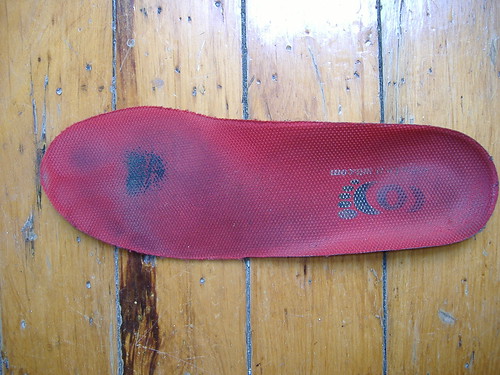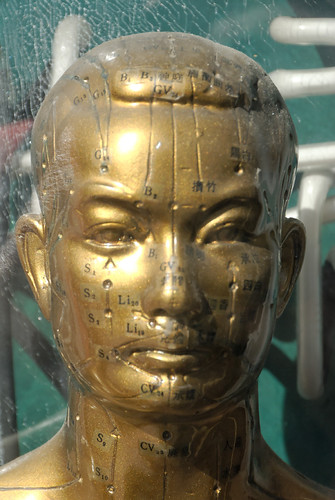 Runners have an infamous phrase that will almost invariably enter their vocabulary at some time. I hear it from injured and non-injured runners alike. Almost every runner will utter these words at some point during their running career:
Runners have an infamous phrase that will almost invariably enter their vocabulary at some time. I hear it from injured and non-injured runners alike. Almost every runner will utter these words at some point during their running career:
“I need to be upping my mileage”.
I have a hard time maintaining a straight face even as I type these words.
Upping my mileage. The scourge of the modern day runner.
If increasing running mileage had a direct relationship with running performance, then the United States should own the world of distance running, especially marathon distance and beyond. There are far more runners in this country running 80 – 100 miles (or more) per week than any other place on the planet, yet we have not won an Olympic marathon gold in more than 27 years.
What’s wrong with this picture?
 In my youth, I always warmed to the thought of the pen being mightier than the sword. I was a scrawny kid, so I had to use words many times to get myself out of trouble with the neighborhood bullies. There is no better way to discover the power of the right words at the right time.
In my youth, I always warmed to the thought of the pen being mightier than the sword. I was a scrawny kid, so I had to use words many times to get myself out of trouble with the neighborhood bullies. There is no better way to discover the power of the right words at the right time.
I always found myself attracted to the words and speeches of the great orators. There was drama and vocal inflection, sure, but it was the words that fascinated me.
I was never much of a writer, and I probably have my share of English teachers to confirm that theory. Let’s just say that math and science were my bread and butter in school. I always loved to read (and still do), but putting my own thoughts into words proved a challenge.
Fortunately, I now see the world from the perspective of reader and writer. With that in mind, I decided that this year I would finally attend the Texas Book Festival. I thought it might prove to be a valuable experience. I wasn’t wrong.
 Plantar fasciitis is another orthopedic condition that accounts for a significant number of clinician visits. Approximately 10% of the United States population experiences bouts of heel pain, and these episodes result in 600,000 visits annually to medical professionals for treatment of plantar fasciitis. Riddle and Schappert (2004) noted that this problem accounts for 1% of all patient visits to orthopedic surgeons.
Plantar fasciitis is another orthopedic condition that accounts for a significant number of clinician visits. Approximately 10% of the United States population experiences bouts of heel pain, and these episodes result in 600,000 visits annually to medical professionals for treatment of plantar fasciitis. Riddle and Schappert (2004) noted that this problem accounts for 1% of all patient visits to orthopedic surgeons.
It is also yet another orthopedic condition that has countless treatments that are known to be not only no better than nature, but are counter-intuitive in the process. It is a condition that clinicians continue to over-treat. This makes it another one of those conditions that I would call “the gift that keeps on giving” – because clinicians continued to be reimbursed for treating it, regardless of the scientific literature.
What is the plantar fascia? Are the most commonly-used treatments of any benefit?
 Over the years, I have been fortunate to have practiced alongside a broad range of clinicians - be they acupuncturists, chiropractors, orthopedists, physical therapists, naturopaths, osteopaths, and doctors of oriental medicine. Each profession lends some intriguing and practical perspectives on patient care. In the same breathe, each profession also has their share of lousy practitioners. You will find that quacks and charlatans are not exclusive to the world of alternative therapies, nor is lack of evidence-based practice limited to Eastern medicine.
Over the years, I have been fortunate to have practiced alongside a broad range of clinicians - be they acupuncturists, chiropractors, orthopedists, physical therapists, naturopaths, osteopaths, and doctors of oriental medicine. Each profession lends some intriguing and practical perspectives on patient care. In the same breathe, each profession also has their share of lousy practitioners. You will find that quacks and charlatans are not exclusive to the world of alternative therapies, nor is lack of evidence-based practice limited to Eastern medicine.
There are many that swear by the benefits of Eastern medicine. They will tell you that Western medicine has failed the patient. They will tell you that it (Eastern medicine) has stood the test of time.
On the flip side of the discussion, the proponents of Western medicine will tell you that Eastern medicine has little scientific evidence and has not been subjected to the rigors of the scientific method.
They are in a parallel universe. Perhaps both sides of that coin are correct.
 I wish I could have been around when our founding fathers had the discussions regarding church and state, when they spoke of freedoms and rights and responsibilities. It sure would provide some necessary context and intent right now in our current political climate.
I wish I could have been around when our founding fathers had the discussions regarding church and state, when they spoke of freedoms and rights and responsibilities. It sure would provide some necessary context and intent right now in our current political climate.
But until I have the opportunity to travel back through the space-time continuum, I just wish that religion and politics would go to separate neutral corners and stay there.
As Sergeant Joe Friday always used to say, “Just the facts, ma’am, just the facts”. So let’s at least stick with the facts as a starting point.
We all know that freedom of speech and freedom of religion are laid out in the First Amendment of the US Constitution. But the problem exists when the facts get bent for political gain, or when religious intolerance disguises itself as freedom of speech.
 This is the final article in a series on Recovery-Centered Training (RCT). This new model of human performance is based on the mechanisms of tissue recovery, adaptation, and development. Not only does it focus on optimizing the sport performance capacity of the athlete, but it also serves as a functional basis for injury prevention-based training. A schematic overview can be found below.
This is the final article in a series on Recovery-Centered Training (RCT). This new model of human performance is based on the mechanisms of tissue recovery, adaptation, and development. Not only does it focus on optimizing the sport performance capacity of the athlete, but it also serves as a functional basis for injury prevention-based training. A schematic overview can be found below.
In articles 2 and 3, I discussed the two primary functional elements of RCT – the mechanical and cognitive networks. As I have previously noted, training is only as good as our ability to recover from and adapt to the imposed training stimulus. An important aspect of recovery and adaptation is having the necessary nutritional building blocks to allow it to happen.
 I am sure that we really shouldn’t have expected much this season. Considering that the Longhorns have played 20 freshman over the course of the first few games, it appears that they are thinking about the long term plan. But the University of Texas got off to a fast start, and lulled everyone into a Top 25, errr, fringes-of-the-Top-10 ranking (depending on the poll you read).
I am sure that we really shouldn’t have expected much this season. Considering that the Longhorns have played 20 freshman over the course of the first few games, it appears that they are thinking about the long term plan. But the University of Texas got off to a fast start, and lulled everyone into a Top 25, errr, fringes-of-the-Top-10 ranking (depending on the poll you read).
That was the mistake. This team really shouldn’t be looking at a Top 25 ranking. What makes matters worse is that they would be forced to play two Top 10 teams in consecutive weeks. The truth would be revealed. Quickly. The Longhorns have been 7 – 0 the week after an OU loss. Until now.
 "Running Injuries: Etiology And Recovery- Based Treatment" (co-author Bridget Clark, PT) appears in the third edition and fourth editions of "Clinical Orthopaedic Rehabilitation: A Team Approach" by Charles Giangarra, MD and Robert C. Manske, PT.
"Running Injuries: Etiology And Recovery- Based Treatment" (co-author Bridget Clark, PT) appears in the third edition and fourth editions of "Clinical Orthopaedic Rehabilitation: A Team Approach" by Charles Giangarra, MD and Robert C. Manske, PT.
 Allan Besselink, PT, DPT, Ph.D., Dip.MDT has a unique voice in the world of sports, education, and health care. Read more about Allan here.
Allan Besselink, PT, DPT, Ph.D., Dip.MDT has a unique voice in the world of sports, education, and health care. Read more about Allan here.
 Top 5 finalist in three categories: "Best Overall Blog", "Best PT Blog" and "Best Advocacy Blog".
Top 5 finalist in three categories: "Best Overall Blog", "Best PT Blog" and "Best Advocacy Blog".